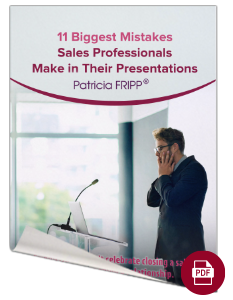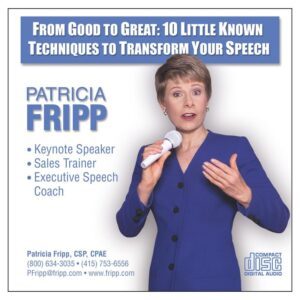Finding a speaker’s ‘voice’ is the key to great speechwriting
By Ian Griffin
Capture your orator’s meaning and cadence through familiarity and a few essential guidelines
Veteran speechwriter Hal Gordon says that speechwriters need to know three things—the speaker, the audience, and the subject. Knowing the speaker means, among other things, being aware of how they speak: How they form their words and their cadence when they address an audience.
If a writer can do this, then he or she has captured the speaker’s “voice.” The speech sounds like it is the speaker’s own, not the words of a professional writer. This is a difficult challenge for many.
True professionals are justifiably proud of their ability to write in a speaker’s voice.
Ted Sorensen: JFK’s Counselor
Ted Sorensen, JFK’s speechwriter and counselor, declined to write speeches for anyone else after he left the White House. He states that he could not write for “a stranger calling me up on the phone.”
Sorensen explains, “For 11 years I was with JFK day and night. I knew what he thought and what he said on almost every subject…We traveled all 50 states together. We ate together, we lived together. We formed a bond.” The result was that “I knew what he wanted to say and how he wanted to say it on virtually every topic.” Indeed, the mind meld was so complete that no one “could determine then—and certainly cannot now—which words in a final draft had originally been his and which were mine.”
An admiring Richard Nixon, of all people, told an interviewer in 1962 that “Sorensen…has the rare gift of being an intellectual who can completely sublimate his style to another individual.”
In the absence of this extremely close personal bond, what is a speechwriter to do?
Ground rules
The first rule is to avoid the temptation to try to sneak something of your own into a speech. Make sure nothing gets into a speech that the speaker does not want to say. This might mean saying “no” to some important people in the organization.
Once you’ve controlled the content, the next challenge is to get the “feel” of the speaker.
It’s a lot easier if, like Sorensen, you have direct access to the executive or politician you are writing for. Traveling with an executive—whether in the corporate jet or on the drive to the auditorium—is invaluable. It’s also easier to spend quality time if you have a staff position as opposed to freelancing with a new client.
Homework
Both freelance writers and staffers must do their homework. Start by reading as many of the speaker’s past speeches as you can find. Better yet, search for video and audio on the Web and in podcasts.
Learn to write in someone’s voice and, essentially, you’ve learned to imitate them. It means avoiding anything that would be discordant, either for them to read or for the audience to hear.
The writer needs to be fully aware of the speaker’s background and characteristics. This might be one or more of the following:
Accent: Many non-native English speakers (and even a few native-born ones) have difficulty with certain words. Learn which ones might cause problems and avoid them.
Emotion: Be aware of the emotional challenge that certain situations might present. Chriss Winston, a member of George H.W. Bush’s speechwriting team, tells of the time Bush had to deliver a eulogy for 47 sailors killed in an explosion on the USS Iowa. The writers had built a number of emotional peaks into the address. Bush’s eyes filled with tears as he came to those passages, and he had to skip them and move on.
Origin: Speakers from the American South obviously speak in a different manner to that of New Englanders. Speakers born outside the United States will have a distinctive style. Having emigrated from the U.K. in the 1970s, I’m well aware that, as George Bernard Shaw said, “England and America are two countries separated by a common language.”
If you are writing for a speaker from overseas, you have the dual responsibility of writing in their voice while not confusing the audience. Be careful about letting your British-born speaker tell an American audience that we are “batting on a sticky wicket” or of letting an American named, say, Randolph Scott, start a speech in the UK with the words “Hi, I’m Randy…”
Education: Overly literate speechwriters should avoid the temptation of larding a speech with flowery language and pretentious expressions. Highly educated speakers and subject experts should use language the audience will understand, even if it’s below their own grade level.
As with much of the craft of speechwriting, if you succeed in finding your speaker’s voice, no one will ever know of the work you do. Nor should they.
Ian Griffin is a corporate speechwriter. This is not the same as a speech coach. Ian and I are happy to discuss the difference.
Ian Griffin is a freelance speechwriter. His blog is a Fripp recommendation.
Read More...



